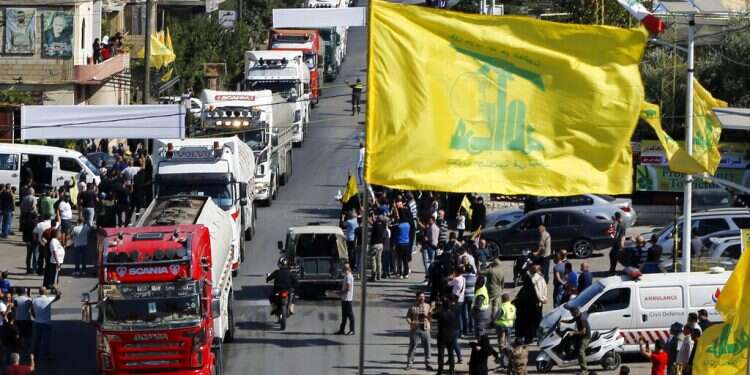Lebanon's Hezbollah terrorist organization announced the arrival of a second ship loaded with diesel from Iran to Syria's Baniyas port Thursday evening, the group's al-Manar TV said on its Telegram channel early on Friday.
Follow Israel Hayom on Facebook and Twitter
The Iran-aligned group said the fuel shipments should ease a crippling energy crisis in Lebanon, while Lebanese Prime Minister Najib Mikati said the Iranian shipments constitute a breach of Lebanon's sovereignty.
Both Syria and Iran are under US sanctions.
Hezbollah first began bringing Iranian fuel into Lebanon via Syria last week, when dozens of trucks carrying the fuel oil entered northeastern Lebanon near the village of al-Ain. The terorrist organization has said third and fourth shipments from Iran were also due.
Washington has reiterated that its sanctions on Iranian oil sales remain in place. But it has not said whether it is considering taking any action over the move by Hezbollah, which it designates as a terrorist group.
The Lebanese government has said its permission was not sought to import the fuel.
The moves mark an expansion of Hezbollah's role in Lebanon, where critics have long accused the heavily armed group of acting as a state within the state.
Hezbollah has said it will donate fuel oil to institutions in need, including government hospitals and orphanages, and sell it at "an appropriate price" to others including private hospitals, medical storage facilities and flour mills.
The energy crisis is a result of a financial meltdown since 2019, sinking the currency by some 90% and sending more than three-quarters of the population into poverty.
Fuel supplies have dried up because Lebanon does not have enough hard currency to cover even vital imports, forcing essential services including some hospitals to scale back or shut down and sparking numerous security incidents.
Lebanon's state electricity company said on Thursday it risked a total blackout across the country by the end of September as its fuel oil reserves dwindle.
The company can generate less than 500 megawatts from fuel oil it secured through a deal with Iraq, it said in a statement.
It said its reserves of both Grade A and Grade B fuel oil had reached a critical point and had run out already for some plants that have now stopped production.
"The network already experienced total blackouts across the country seven times and if this continues there is a high risk of reaching total and complete blackout by end September," the statement said.
Subscribe to Israel Hayom's daily newsletter and never miss our top stories!
Iraq signed an agreement in July allowing the cash-strapped Lebanese government to pay for 1 million tons of heavy fuel oil a year in goods and services.
The heavy fuel oil is not suitable for use in Lebanon, but it is exchanged in tenders for a suitable grade.
Western governments and donor institutions have said they will unlock aid once Lebanon enacts reforms.
The United States, a big supplier of humanitarian and military aid to Lebanon, is backing a plan to ease the energy crisis using Egyptian natural gas piped via Jordan and Syria. The US ambassador has said Lebanon does not need Iranian fuel.




